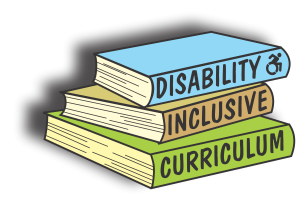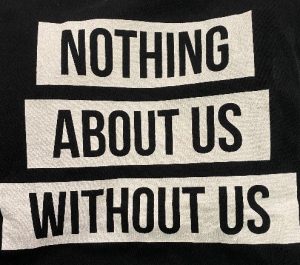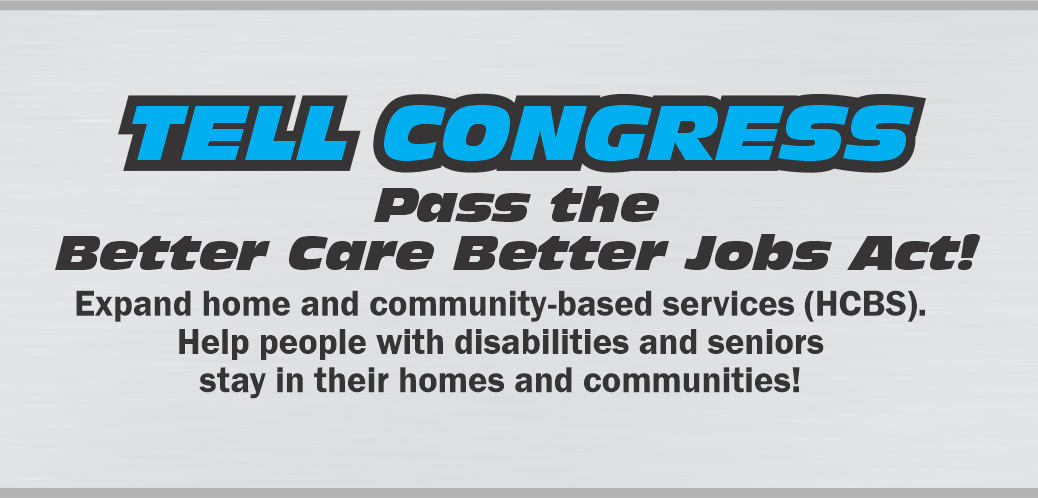How to Improve Medicaid

Full description
Doodles & text about improving medicaid. Title: How to improve medicaid (for those who “truly need it”).
Image: Man in wheelchair smacking his head. T-shirt reads, “Our homes not nursing homes”. He is saying “we already cannot get enough support to eat, bathe, dress, toilet, transportation, work, shop or be safe.” Image: Shocked looking man, “You mean disabled folks don’t just get what they need?” A large question mark over his head.
Highlighted groups of texts. Increase funding! End waiting lists! Millions unserved & underserved! This group includes a doodle of a money bag and green arrow pointing up. Increase rates! End staffing shortage crisis! Improve quality! Side image of dollar signs getting larger with an arrow going up. End institutional bias! Home & community based services (HCBS) must be mandatory! (not optional). Increase rights, protections, opportunities & accessibility!
At the bottom of the cartoon is a row of protest signs and hands. Signs read: Equal access! Disability rights are civil rights! Stop segregation! Implement Olmstead! End disability poverty! Community supports now! Cuts will kill! Real homes not group homes! The words “Talk with the people!” Appears over a cat. Colleen Tomko copyright 2025
When states get fewer dollars they have limited choices.
-
Reduce Benefits
-
Reduce Enrollees
-
Take funds from other budget items
-
Raise taxes
Medicaid is already underfunded and requires increased funding to meet the needs of people with disabilities and seniors. General cuts (Even when claiming to address specific issues) have historically been shown to reduce critical community services for people with disabilities, because they are optional and the easiest to reduce in state budgets.
For example: From 2010 to 2012, all states reduced HCBS program spending in response to Federal Medicaid cuts. All states reduced spending on Home and Community-Based Services (HCBS), either by spending less per person or by reducing the number of beneficiaries receiving HCBS. In many states, waiting lists for HCBS grew substantially, and still exist today!
When states reduce Medicaid’s Home and Community Based Services, people lose essential supports to remain in thier own homes and community. This is in direct conflict with the Supreme Court’s 1999 Olmstead decision, which established that unjustified segregation of people with disabilities in institutions is a form of discrimination under the Americans with Disabilities Act (ADA), creating civil liberties issue. Private insurance companies do not provide for community services or home care. Without Medicaid, everyone becomes susceptable to loss of their civil rights and being forced into institutional care when they have greater needs.
CONTACT YOUR LEGISLATORS!
(866) 473-5915
Let them know what Medicaid means to you, your families, friends and neighbors! Let them know how they can improve Medicaid!



 The
The 


